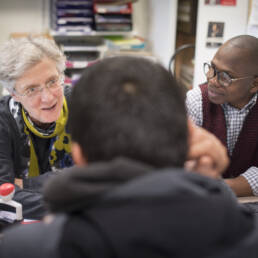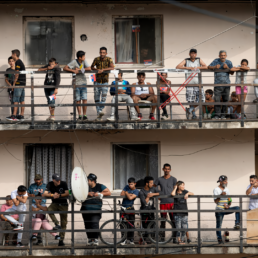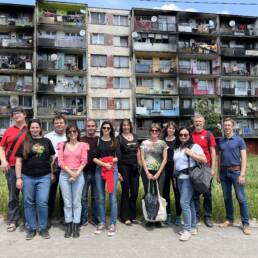Caritas Europa has written a position paper on supporting Europe’s young people in times of crisis. The paper outlines recommendations to be included in the campaigns and political group manifestos of candidates for the 2024 European Parliament elections.
The 2022 European Year of Youth was proclaimed by European Commission President Ursula von der Leyen as “a year dedicated to empowering those who have dedicated so much to others”. Yet, whilst various Commission initiatives were being rolled out to try and empower young people, for many, the day-to-day realities were becoming increasingly difficult, particularly for those living in or at risk of poverty. Rising energy prices, unaffordable rent, soaring food costs and housing shortages have led to a very difficult, even desperate, socio-economic situation for these young people.
To ensure a stable and decent future for Europe’s young people, that leaves none of them behind, the work done so far in the EU needs to continue and be amplified, acknowledging and tackling the challenges young people face, taking their perspectives, needs and hopes into account.
In light of the upcoming 2024 European Parliament elections, and based on information provided by our member organisations, we advocate for the following recommendations:
- Ensure the adoption of a Framework Directive on Minimum Income standards, including the eligibility of all people aged 18+, to set a binding EU-wide quality standard for social safety nets;
- Improve access to affordable and/or social housing, especially for young people at risk of poverty;
- Call for a Council Recommendation on quality work experience for young people, including a ban on unpaid internships, traineeships and apprenticeships after finishing studies, and on more decent entry-level positions with access to training, social security and fair remuneration;
- Call for the EU’s accession of the Revised European Social Charter.
Young people living in or at risk of poverty often include NEETs (those not in employment, education or training), Roma youth, young migrants and refugees, young women and young people with disabilities. In this position paper, we identify young people as those between the ages of 15-29, in line with the reinforced Youth Guarantee.
More information
Lucy Anns
Senior Policy and Advocacy Officer
Tel: +32 (0)2 235 26 52
Mob: 32 (0)492 505 860
lanns@caritas.eu




